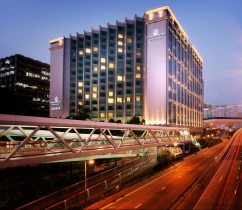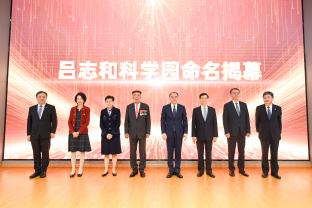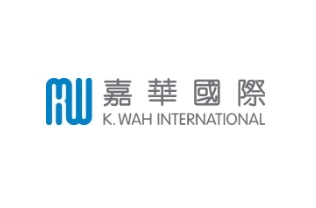Speeches and Transcripts
Peking University Donation And Signing Ceremony for the School of Life Sciences
Peking University Donation And
Signing Ceremony for the School of Life Sciences
8 November 2017 (Wednesday) at 11am
Picasso Room, Level B1, InterContinental Grand Stanford Hong Kong
Professor Lin Jianhua, President of Peking University; Professor Wang Bo, Vice President of Peking University; Professor Wu Hong, Dean of the School of Life Sciences; members of Peking University who have come all way from Beijing, distinguished guests and friends from the media,
Good morning and thank you for gracing us with your presence at the donation and signing ceremony for the School of Life Sciences, Peking University. It is indeed a great honour for me to make contribution to the development of Life Sciences in China. I am pleased to announce the donation of RMB120 million will be made to Peking University for the establishment of the “Lui Che Woo School of Life Sciences Fund” in support of the School of Life Sciences of Peking University.
Boasting a fine tradition in “patriotism, progress, democracy and science,” Peking University has made important contributions to the renaissance and modernisation of our nation. It has drawn top-notch academics and experts from every part of the world, and it has also nurtured a myriad of talents who have become the stalwart underpinning China’s development in successive eras.
Peking University has laid claim to a massive number of significant scientific achievements in the past and the newly established Building will continue to be the host of advanced facilities and establishments, such as 2 national key laboratories, a key laboratory supported by the Ministry of Education, the IDG McGovern Institute for Brain Research at PKU, Center for Quantitative Biology . With the development of the National Center for Protein Science (the “Phoenix Project”) at Peking University, the Electron microscopy platform and the Laboratory Animal Center, to name a few, the University continues to grow into a leading integrated R&D institution of our nation, heralding the development of Life Sciences in China and the rest of the world for the common welfare of mankind.
I have paid a visit to the School of Life Sciences of Peking University, an institution with an illustrious history of more than 90 years, and have found its past achievements and its planning for the future most impressive. I have learnt that Professor Wu Hong, Dean of the School, had studied and worked overseas for nearly 30 years before accepting the University’s invitation in 2013 to return to China and takes up her current position. Over the past century, a multitude of overseas Chinese academics have returned for involvements in scientific research, development and education like Professor Wu, nurturing top-calibre talents for the nation with the benefit of their diligent, rigorous, pragmatic and innovative approach. They have my profound respect and admiration.
For many years, I had been hoping to contribute my humble effort for the betterment of the community, with a particular interest in education. Subsequently, the “LUI Che Woo Prize – Prize for World Civilisation” was founded two years ago as part of my charitable endeavours. The Prize aims to reward and give recognition to individuals or organizations that have made selfless contributions to the advancement of world civilisation and to raise awareness of current global issues, particularly from a moral perspective and sustainable development.
Through the nomination process of The LUI Che Woo Prize, we have come to appreciate that the Specific Area of Focus identified by us every year are critically dependent on the progress and the promotion of modern science and technology. In this connection, Life Sciences stand as one of the most important forces providing solutions to countless crises and issues in human development with the application cutting-edge scientific knowledge.
Today, I am proud and honoured to be able to play a part in supporting the research and teaching of Life Sciences at Peking University also the construction of a national base for sciences research and education relating to key technologies. Grateful thanks are due to the leadership of Peking University for their broad vision set at the future development of mankind, and for their incessant effort to drive the development of Life Sciences in China over the years.
May I also take this opportunity to extend sincere congratulations to Peking University, which will be celebrating its 120th anniversary next year. I hope this modest gesture of support for Peking University will encourage tertiary institutions in China to engage in innovative research works with profound significance and further improve the environment for sciences research and education , so that more specialists in technological research will be groomed to serve in China and elsewhere, and ongoing endeavours can be made to unveil the mystery of life for the improvement of human health. Thank you.





.jpg)










